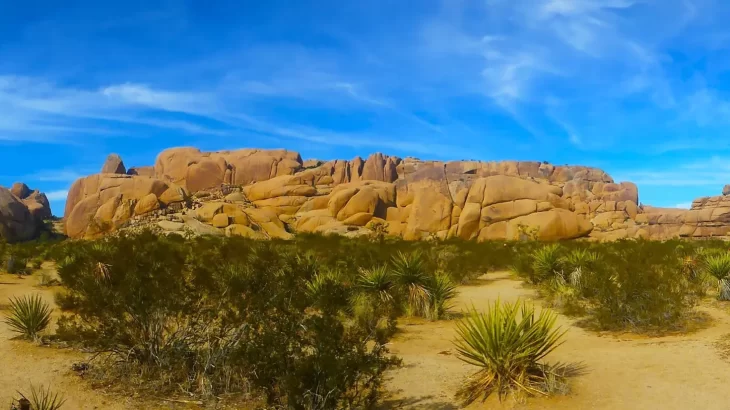I’m in a desert of sorts.
Deserts are lands of sparsity where evaporation exceeds rainfall. Harsh habitats for a writer.
Coming from a temperate rainforest, I feel it from day one in my skin, my eyes, and my not-naturally-straight hair. With every breath, I’m parching.
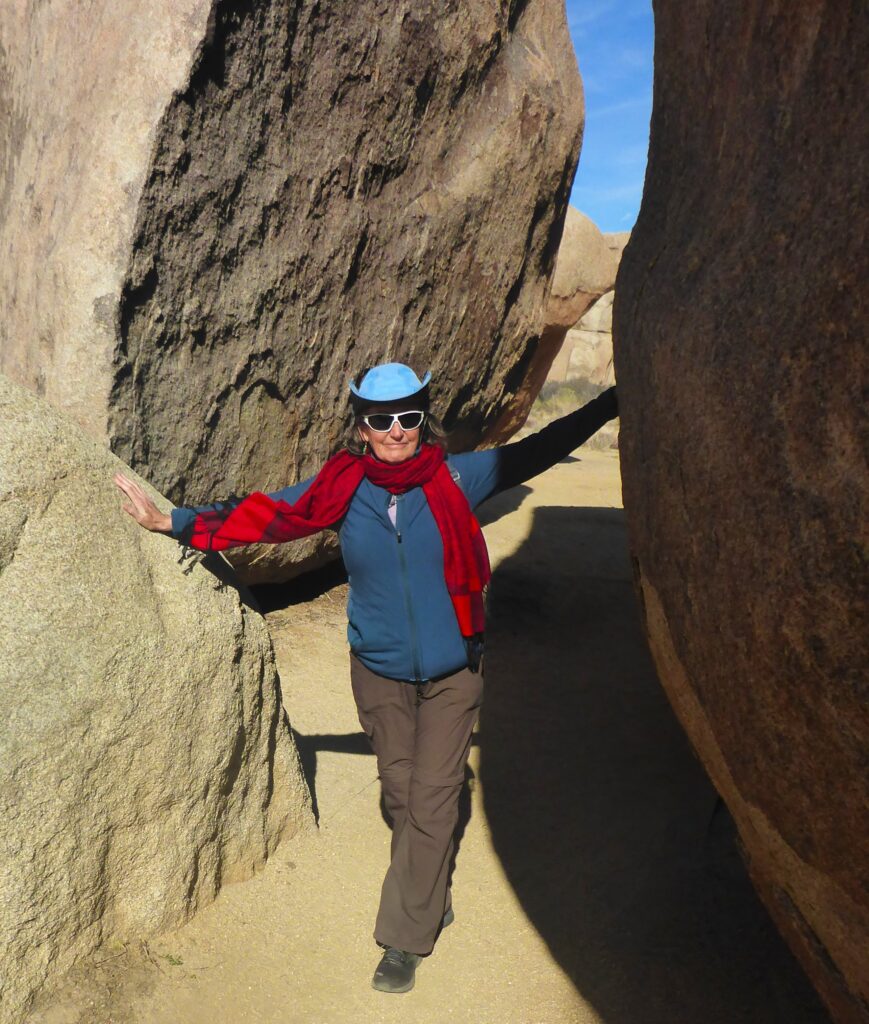
On a bicycle tour of Palm Springs, our guide says, “Being in the desert sucks the moisture right out of you.”
Of the five types of desert, mine’s the Mojave—a ‘rain shadow desert’ versus the other four: polar, coastal, sub-Saharan and interior.
I’m on the lee-side of my mountain. I’m wrung out and on the descent. I toss anchor ‘beside the water’ – the Spanish meaning of ‘mojave’. But that was ages ago.
All in all, I feel yucca. The yucca brevifolia is the ‘Joshua Tree’.
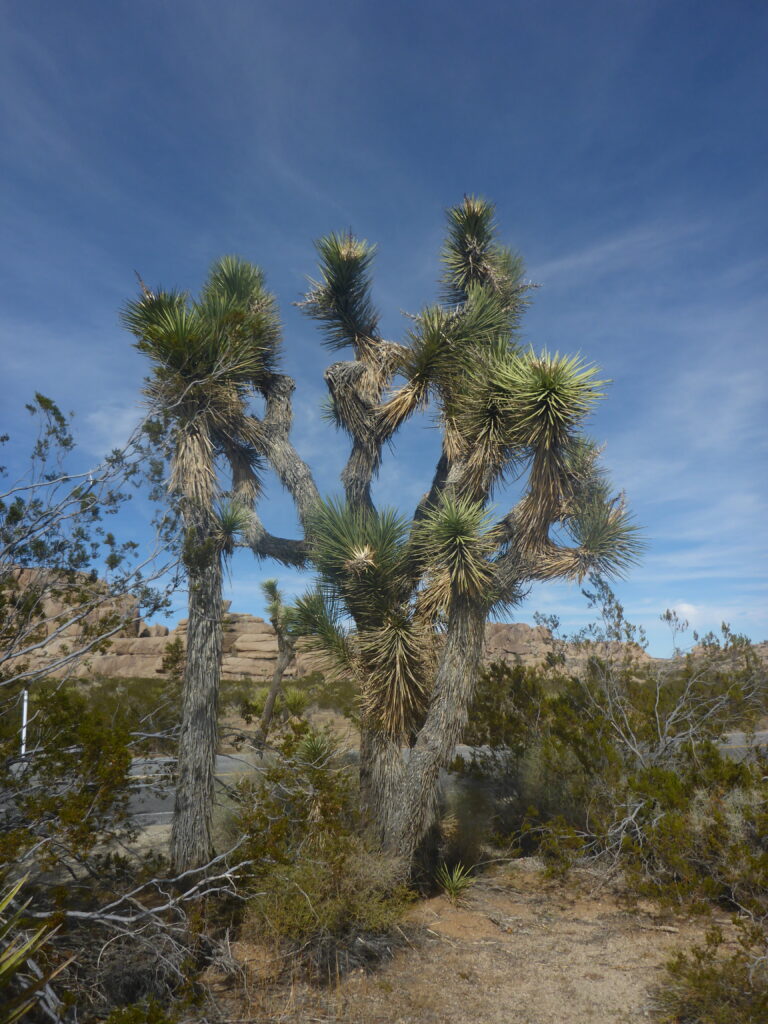
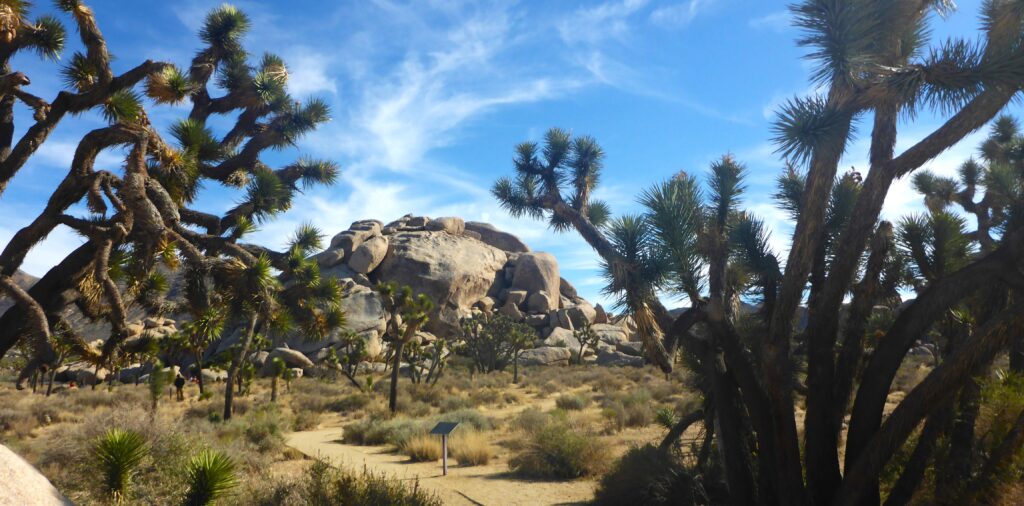
I admire the monzogranite boulders, pushing their way through Pinto gneiss these past 85 million years. Why do writers do it the hard way?

*
Comparing myself to a desert plant/plain, why am I not a summer’s day?
I have a project on the cusp. I’m at a crux. That’s all.
Time is spent revising, rewriting and moisturizing material. It can feel like a wilderness.
The Pinto people built stone houses. They prayed to the spirit in every living thing.
Which reminds me to…
Keep going like the roadrunner, ‘beep, beep.’
For all the solitude and challenge that writing presents, catch some dew.
Grow deeper mesquite roots. It only takes one Yucca Moth to fertilize a project, and before you know it, you’ll be in a Cactus Garden.
Charles Darwin called the Yucca Moths with their feet-and-tentacle approach to the Joshua tree flower “the most wonderful case of fertilization ever described.[1]”
My feet-and-tentacles are to the task: my outreaching Joshua-tree hands on the tiller.
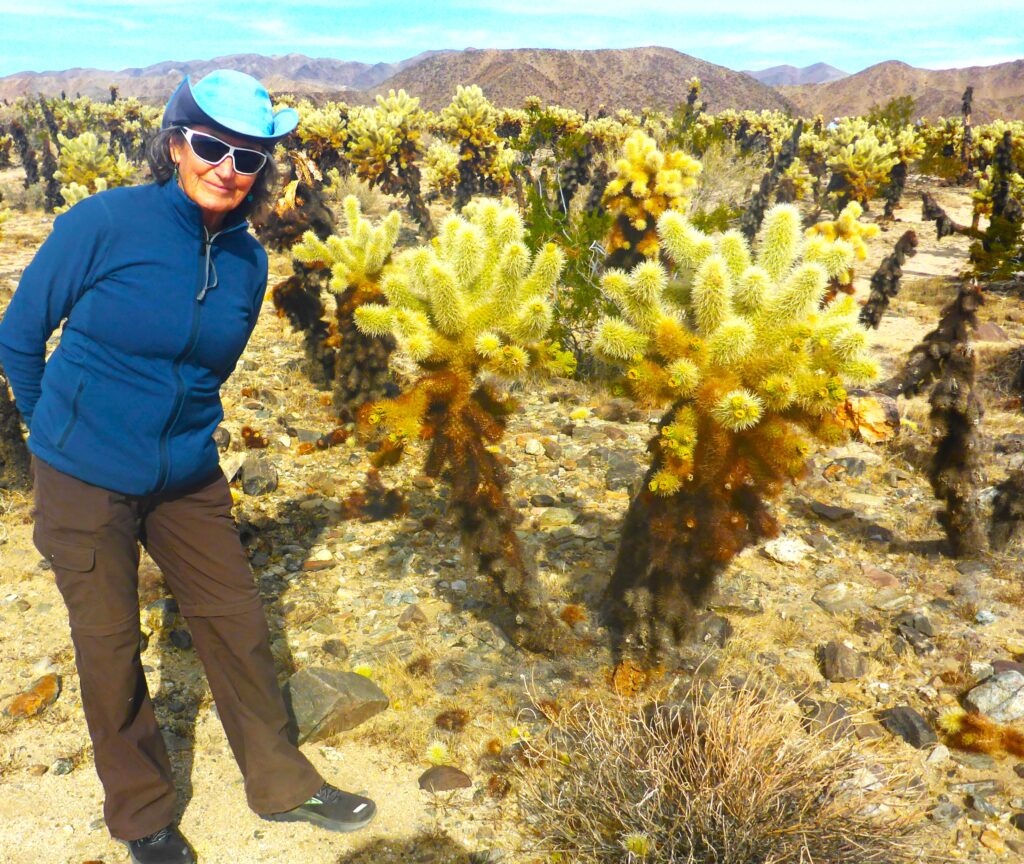
From rain forest to rain shadow, desert oases offer spiny sessions on how to persist.
[1] https://joshuatreegenome.org/joshua-trees/
